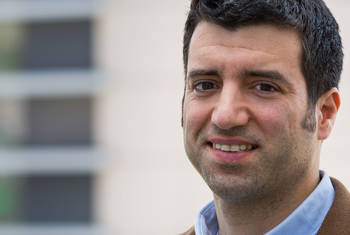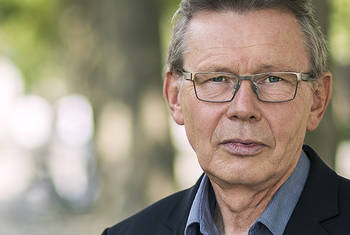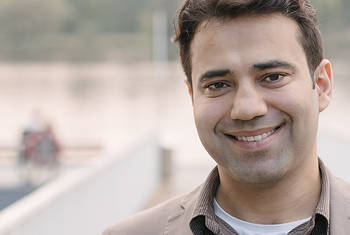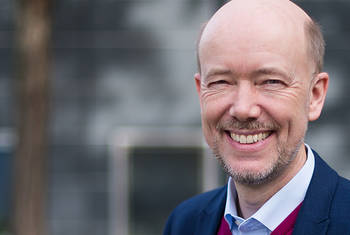Largus T. Angenent How Can Waste Be Converted Into a Source of Carbon for the Production of Chemicals?
Largus Angenent is Professor of Environmental Biotechnology at the Center of Applied Geosciences, Eberhard Karls University of Tübingen. Before this appointment, he was Professor in the Department of Biological and Environmental Engineering at Cornell University. Currently, he is interested in recovering carbon with open cultures, defined mixed cultures or pure cultures of microbes. He is co-owner of several US patents and has received a number of awards and honors, for instance, the Alexander von Humboldt Professorship (2017) and the SUNY Chancellor’s Award for Excellence in Scholarship and Creative Activities (2015).
Area of Research
Environmental Biotechnology
since 2016
Professor of Environmental Biotechnology
University of Tübingen (Eberhard Karls Universität Tübingen)
Center for Applied Geoscience
2015-2017
Professor
Cornell University
Department of Biological and Environmental Engineering
2014-2015
Visiting Professor
University of Ghent
Faculty of Bioscience Engineering
2008-2014
Associate Professor
Cornell University
Department of Biological and Environmental Engineering
2008-2009
Adjunct Professor
Washington University in St. Louis
Department of Energy, Environmental and Chemical Engineering
2002-2008
Assistant Professor
Washington University in St. Louis
Department of Energy, Environmental and Chemical Engineering
2002
Post-doc Environmental Engineering/Molecular Biology
University of Colorado Boulder
2000
Post-doc Environmental Engineering
University of Illinois, Urbana
1999
Visiting Lecturer
University of Illinois, Urbana
Department of Civil and Environmental Engineering
1998
PhD in Environmental Engineering
Iowa State University
1994
M.Sc. Environmental Technology/Microbiology
University of Wageningen
1992
B.Sc. Environmental Sciences
University of Wageningen
- Angewandte Chemie
- Annals of Microbiology
- Applied and Environmental Microbiology
- Applied Microbiology and Biotechnology
- Atmospheric Environment
- Bioresource Technology
- Biosensors and Bioelectronics
- Biotechnology and Bioengineering
- Chemical Communications
- Chemical Engineering and Processing
- Chemosphere
- Current Opinion in Biotechnology
- Electrochemistry Communications
- etc.
- International Water Association
- International Society for Microbial Electrochemistry and Technology
- Society for Applied Microbiology
Fellowships
- Alexander von Humboldt Professor (2017)
- Kavli Fellow, U.S. National Academy of Sciences (2008)
Prizes
- SUNY Chancellor's Awards for Excellence in: Scholarship and Creative Activities (2015)
- Excellence in Review Award, Environmental Science & Technology (2007)
- NSF Career Award, U.S. National Science Foundation (2007)
Currently, the petrochemical industry uses fossil fuels as the source of carbon for the production of many things, including plastics. This is problematic because carbon dioxide adds to climate change and, in addition, fossil fuels are running out. Therefore, LARGUS ANGENENT and his research group are looking for new sources of carbon. As he explains in this video, their aim is to convert waste into the chemicals needed without adding anything to the original waste product. Specifically, they have focused on acid whey, a side product from the production of Greek yogurt. They have developed a two-phase system that allows them to convert acid whey into medium-chain carboxylic acids, their product of choice. This successful conversion from valueless waste into a useful product is an important step in the process of resource recovery.
LT Video Publication DOI: https://doi.org/10.21036/LTPUB10609
Temperature-Phased Conversion of Acid Whey Waste Into Medium-Chain Carboxylic Acids via Lactic Acid: No External e-Donor
- Jiajie Xu, Jiuxiao Hao, Juan J.L. Guzman, Catherine M. Spirito, Lauren A. Harroff and Largus T. Angenent
- Joule
- Published in 2018








